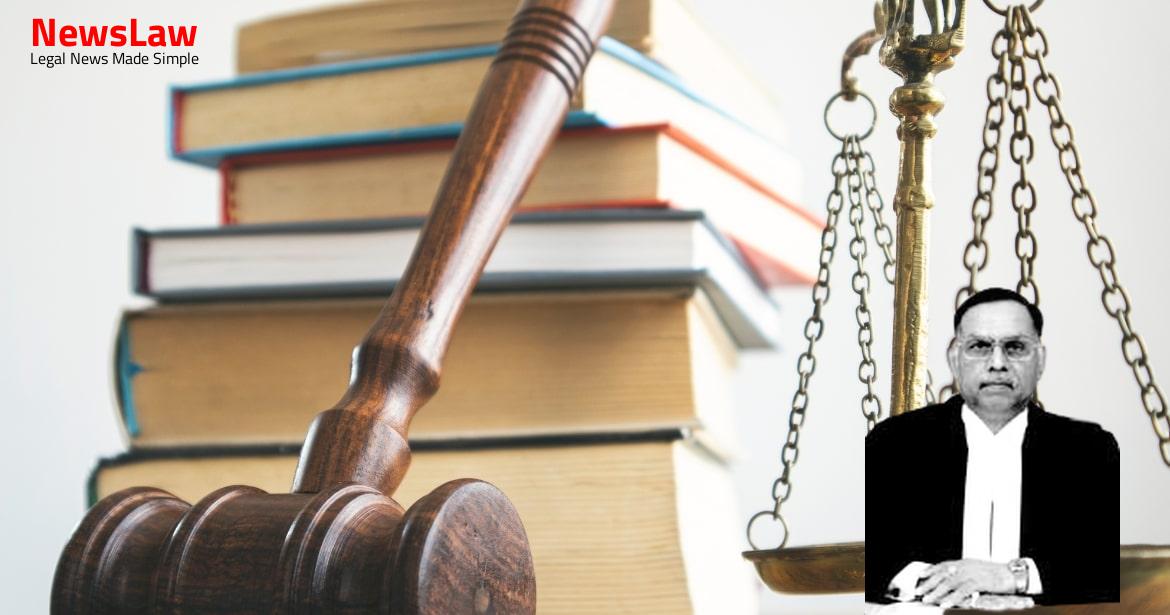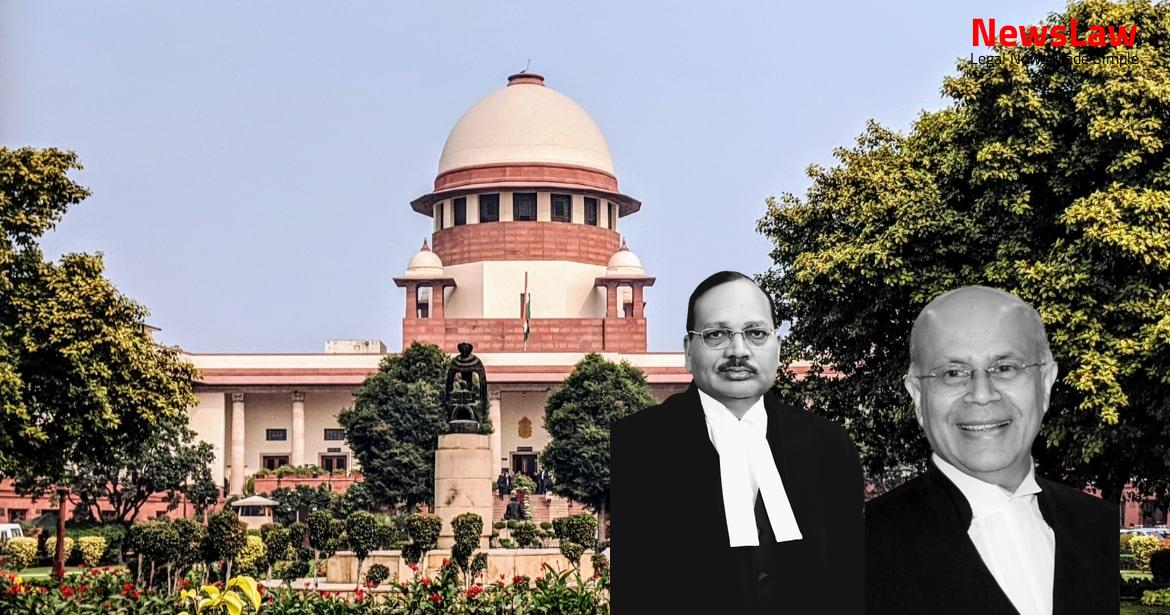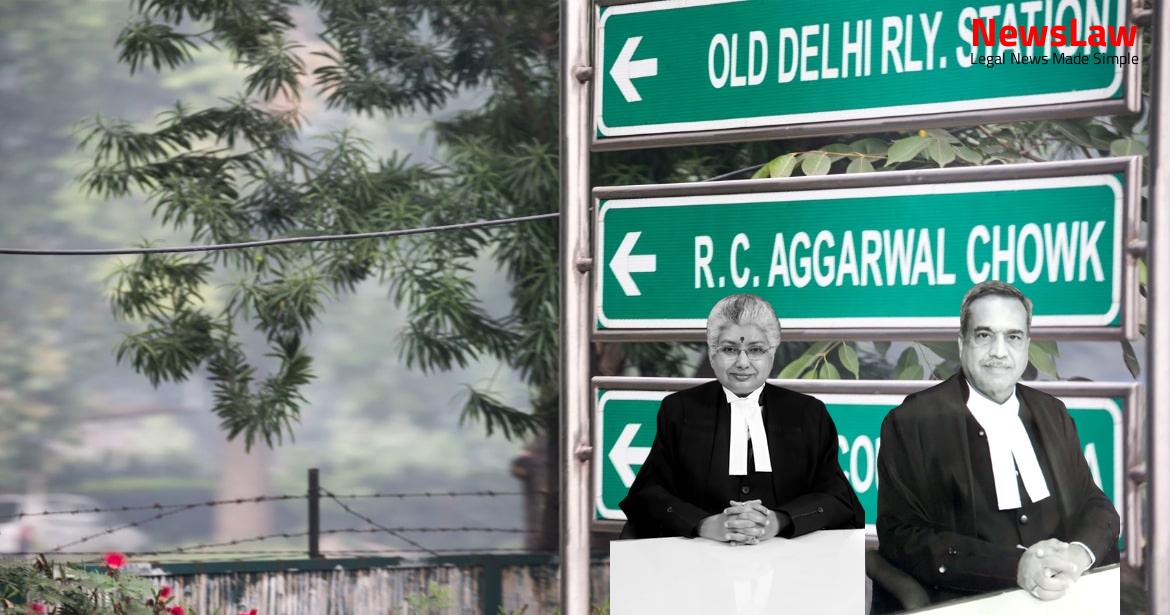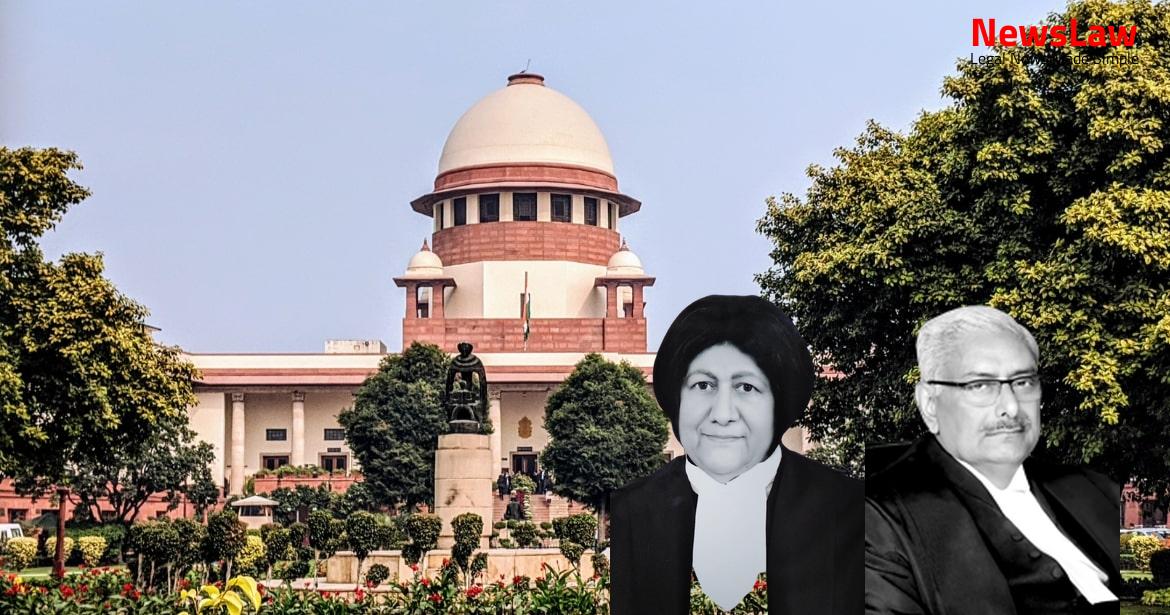In a recent case, the court delves into the complexities of determining seniority for Armed Forces Personnel, focusing on the applicability of specific rules and precedents. The court’s thorough legal analysis sheds light on the nuances of the case, emphasizing the importance of understanding legal rules and judgments in such matters.
Facts
- The appellant filed a Writ Petition No.8069 of 2001.
- Judgment of the learned Single Judge was set aside and the writ petition filed by the appellant was dismissed.
- The State of Punjab filed LPA No.213 of 2007 against the judgment of the learned Single Judge.
- The appellant claimed re-fixation of seniority by granting military services benefit as per Rule 4 of 1972 Rules.
- The seniority of the appellant was fixed at S.No.25 in the 1994 seniority list without granting him any benefit of earlier services in the Army.
- The appellant submitted a representation against the wrong fixation of his seniority.
- The Division Bench judgment of the High Court of Punjab and Haryana dated 28.07.2009 in LPA No.213 of 2007 with LPA No.177 of 2007 was appealed against by the appellants.
- The High Court allowed the LPA filed by the State of Punjab and dismissed the writ petitions filed by the appellants.
Also Read: Interstate Prisoner Transfer: Court’s Legal Analysis
Issue
- The only issue to be considered in this appeal is whether the appellant is entitled to the benefit of Rule 4 of 1972 Rules for determination of his seniority.
Also Read: Judicial Analysis on Conversation Authenticity and Enquiry Need
Arguments
- The High Court in Writ Petition No.3236 of 1995 had already determined that the reservation of vacancies for Armed Forces Personnel should be 20% as per the 1972 Rules and not 15% as per the 1982 Rules.
- The State argues that since the appellant applied after the enforcement of the 1982 Rules, their seniority cannot be determined based on the 1972 Rules.
- The appellant relies on the judgment in State of Punjab vs. Dr. Balbir Bharadwaj where it was established that the reservation quota for vacancies prior to 12.02.1982 should be 20% for Ex. Servicemen.
- The Single Judge ruled in favor of the appellants, stating that the vacancies they were appointed to in 1986 existed before the enforcement of the 1982 Rules, making the 1972 Rules applicable for determining their seniority.
Also Read: Revisiting Reservation Limits: Upholding Equality
Analysis
- Rule 4 of 1972 provided that military service rendered by a candidate appointed against reserved vacancies shall count towards pay and seniority.
- The 1972 Rules were superseded by the Punjab (Recruitment of Ex-servicemen) Rules, 1982.
- Rule 4 of 1982 no longer continued the provision of counting military service towards pay and seniority for candidates appointed against reserved vacancies.
- Rule 4 of 1982 reserved fifteen percent of vacancies for recruitment of Ex-servicemen, with provisions for filling vacancies if ex-servicemen are not available.
- The total number of reserved vacancies, including those for Scheduled Castes, Scheduled Tribes, and Backward Classes, should not exceed fifty percent of the posts to be filled in a particular year.
- Vacancies from 1979 to 1982 had to be considered when the recruitment advertisement was made on 01.05.1982.
- Vacancies occurring after 1982 also needed to be taken into account.
- Unfilled vacancies from 1979 to 1982 were to be carried forward under the 1972 and 1982 unamended rules.
- The judgment ruled that vacancies reserved for Armed Forces Personnel should be calculated as per the 1972 Rules since they occurred prior to the 1982 Rules.
- There was no indication in the 1982 Rules that the benefits of Rule 4 of the 1972 Rules continued for Armed Forces Personnel regarding seniority.
- Rule 9(3) of the 1982 Rules stated that nothing in the rules deprived any person of rights accrued under the rules in force before 1982.
- Seniority determination comes into play after a person enters service and becomes a member of the service.
- The judgment emphasized that the benefits of Rule 4 of the 1972 Rules for seniority were no longer available under the 1982 Rules.
- Rule 4 of the 1972 Rules providing seniority benefits based on Army service was not considered for those appointed after the enforcement of the 1982 Rules.
- The judgment focused on the reservation percentage for vacancies occurring before the enforcement of the 1982 Rules, which was set at twenty percent.
- Departure from the normal rule of fixing seniority based on entry date must have a weighty reason.
- The Division Bench agreed that the saving clause under Rule 9(3) did not extend benefits to the appellant for seniority.
- Exceptional benefits for ex-servicemen were not extended to all based on Army service alone.
- The provision for reservation of vacancies was maintained at fifteen percent under the 1982 Rules.
- Rule 10 of the 1982 Rules outlined the repeal of previous rules related to reservation and eligibility for promotion of Armed Forces Personnel.
- The advertisement under which the appellant was appointed was issued after the enforcement of the 1982 Rules.
- The appellant was appointed in 1986 based on the 1982 Rules.
- The Single Judge ruled that the twenty percent reservation under the 1972 Rules applied due to vacancies from 1979 to 1982.
- Vacancies after 30 April 1984 were to be carried forward based on the 1984 amended rules.
- Rule 5 of the Demobilized Armed Forces Personnel (Reservation of Vacancies in the H.P. State Non-Technical Services) Rules, 1972 allowed counting approved military service for determining seniority on joining civilian post.
- A reasonable classification was found between persons joining Armed Forces during emergency and peacetime.
- The benefit of adding seniority for persons joining Armed Forces during emergency was not extended to those joining during peacetime to avoid far-reaching implications.
- The judgment of Ishwar Singh of the Punjab and Haryana High Court, which focused on reserved vacancies for Army personnel, was deemed irrelevant in the determination of seniority in the present case.
- The judgment in R.K. Barwal and others versus State of Himachal Pradesh and others, (2017) 16 SCC 803 was noted.
- The appellant was not entitled to claim benefit of military service for the purpose of seniority for appointment to Punjab Civil Service(Executive Branch) due to the absence of Rule 4(1) of 1972 Rules in 1982 Rules.
- The appellant’s seniority was to be determined by the statutory rules applicable after the enforcement of 1982 Rules.
- No error was found in the judgment of the Division Bench of the High Court.
Decision
- The appeals were dismissed.
- The RPC was carefully considered.
- The arguments presented were found to be unpersuasive.
- No errors in law were identified in the RPC.
Case Title: JAGMOHAN SINGH DHILLON ETC.ETC. Vs. SATWANT SINGH (2021 INSC 215)
Case Number: C.A. No.-004616-004618 / 2010



